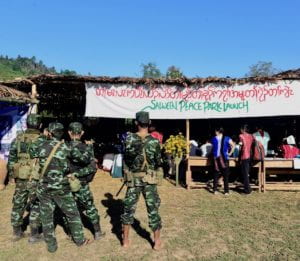According to the Department of Work and Pension’s most recent Family Resource Survey, 13.9 million people in the UK reported a disability. This works out at around 22% of the UK population, a percentage which is likely to rise over the next few years due to increased life expectancy. Despite constituting such a significant group, they are under-represented across our political legislatures at both the local and national levels.

Photo by Oliver Cole on Unsplash
The under-representation of disabled people in politics has detrimental consequences for the health of our democracy. In particular, it has the potential to affect the ways in which issues and interests of particular importance to disabled people are represented. When specific groups are under-represented, there is the danger that their voices and perspectives are not included. Indeed, research has shown that disabled people perceive the political system as less responsive to their demands.
Recognising that disabled people face particular types of obstacles in the political recruitment process, and also that the issue itself receives little academic or political attention, the Minister for Women and Equalities has commissioned us — Dr Elizabeth Evans (Goldsmiths, PIR) and Dr Stefanie Reher (University of Strathclyde) — to study the barriers to elected office. By interviewing candidates, activists and elected politicians across all parties, as well as Independents, our objective is to create a list of recommendations on how to tackle and reduce those barriers for relevant stakeholders to discuss, with the ultimate aim of increasing the number of disabled politicians.
Of course, disabled people are not a homogenous group. There are a significant range of impairments that affect people’s opportunities in a variety of ways, including: financial costs; accessibility; the oftentimes aggressive and ‘yah-boo’ nature of Westminster politics; and the demands of election campaigning. The complexity of disability as a category means that there will not be one single explanation for why disabled people are under-represented, nor will there be a ‘one size fits all’ approach to addressing patterns of under-representation.
The issue of disabled people’s political representation has received little attention beyond the UK. This means that we cannot necessarily learn from ‘best practice’ in similar systems of democracy. Indeed, cases in which active measures have been taken to address the representation of disabled people typically occur in post-conflict societies, in which the sudden and significant increase in the number of disabled people required an urgent political solution. For instance, Uganda have introduced reserved seats for disabled people, a strategy that is unlikely to work in the UK system.
Our research is therefore intended to shine a light on the range of barriers experienced by disabled people with a range of impairments in the UK, in order to create a list of appropriate solutions based on the experiences and views of disabled people who are politically engaged. Our findings will be published in a report for the Government Equalities Office, which will be made available to all relevant stakeholders and the public.

